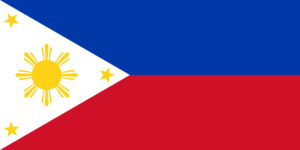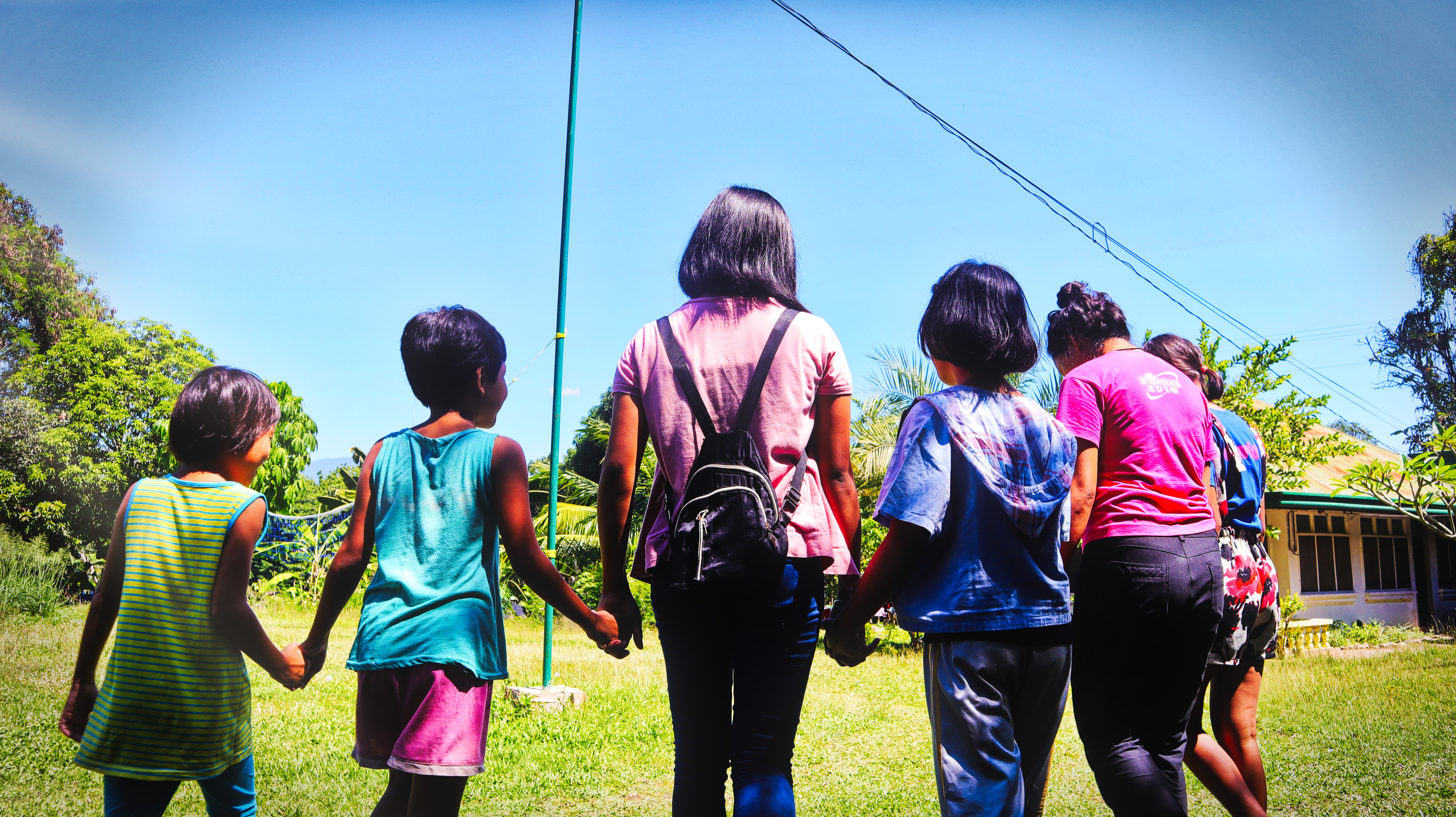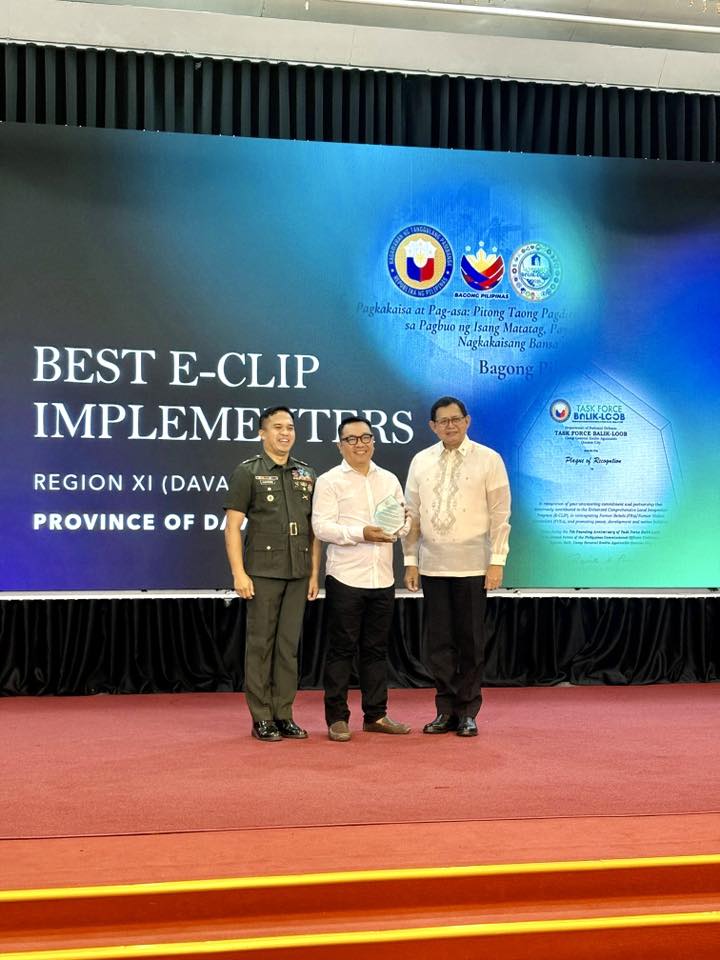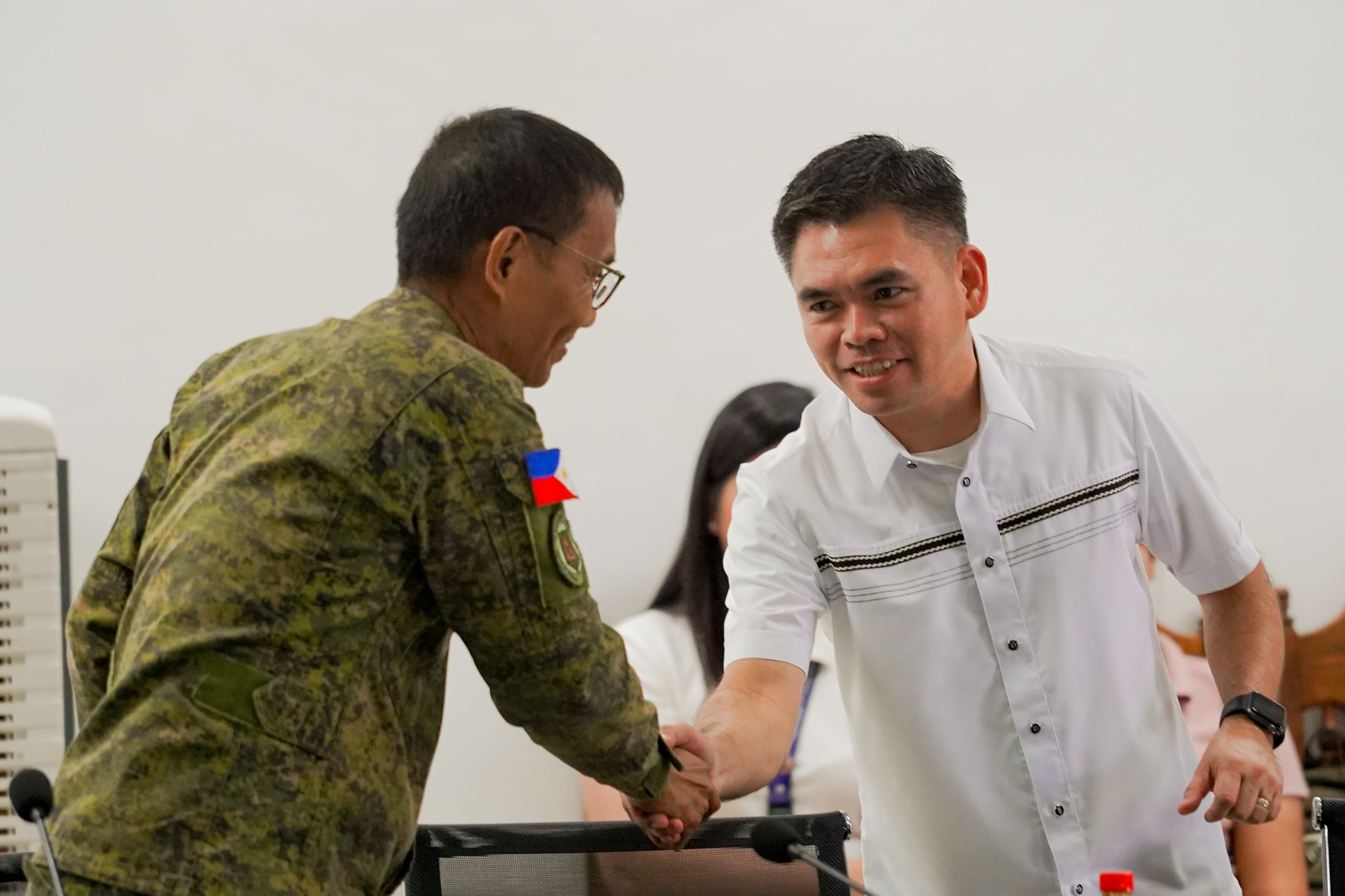DAVAO ORIENTAL – A former child soldier, who at a young age was introduced into a life of violence, says she is lucky and thankful to have escaped the brutality of a “senseless war.”
Shy and reserved, Beth, 17, who is currently housed at the Provincial Government-run Reception Study and Diagnostic Center (RSDC) under the care of social workers began to bravely recall her painful past which led her to join the Communist movement.
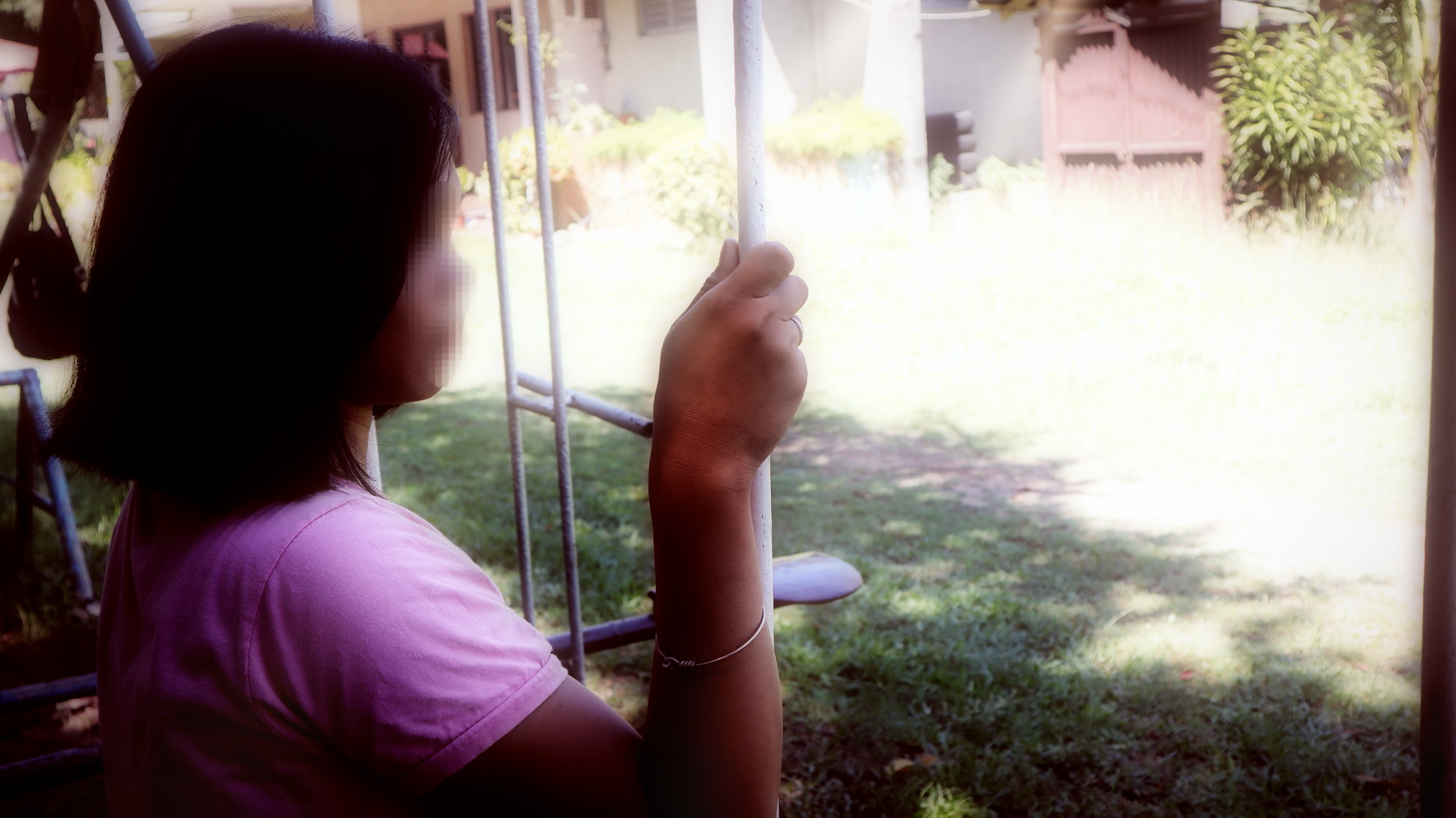
At the age 16, Beth learned how to use an M14 firearm and scores of other weapons when she joined the Communist-Terrorist group New People’s Army (NPA).
Having no idea of what she was fighting for, Beth said she was enticed to join the rebel group when her father, an NPA commanding officer who has been inside the movement for nearly five decades, had convinced her to join him in the mountains with promises of financial support and a better future – a promise which Beth says was “an utter lie.”
“My father told me it’s better to be inside the movement since I don’t need to go to work because I am still young,” Beth said.
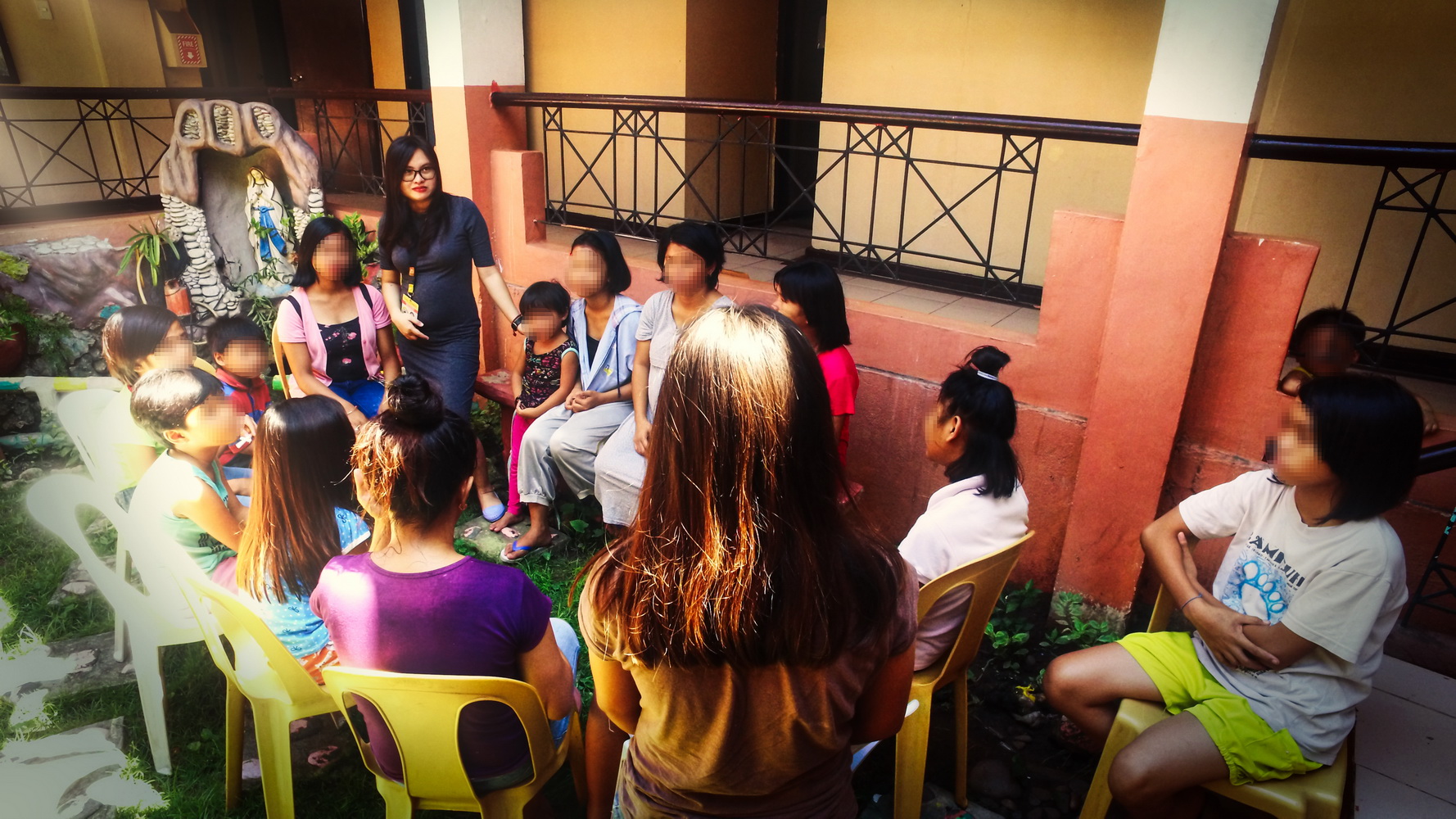
“I was in sixth grade when I left school in 2016 and worked in a bakery to support myself and my family,” she said.
The youngest in five siblings, she said she was separated from her brothers and sisters who were left under the care of their other relatives. She said she stopped attending school because of frequent transfer of residence and schools as her estranged parents took turn in taking care of her. Her three brothers and sister have once joined the insurgent group, but all of them have already surrendered to the government a few years ago, she said.
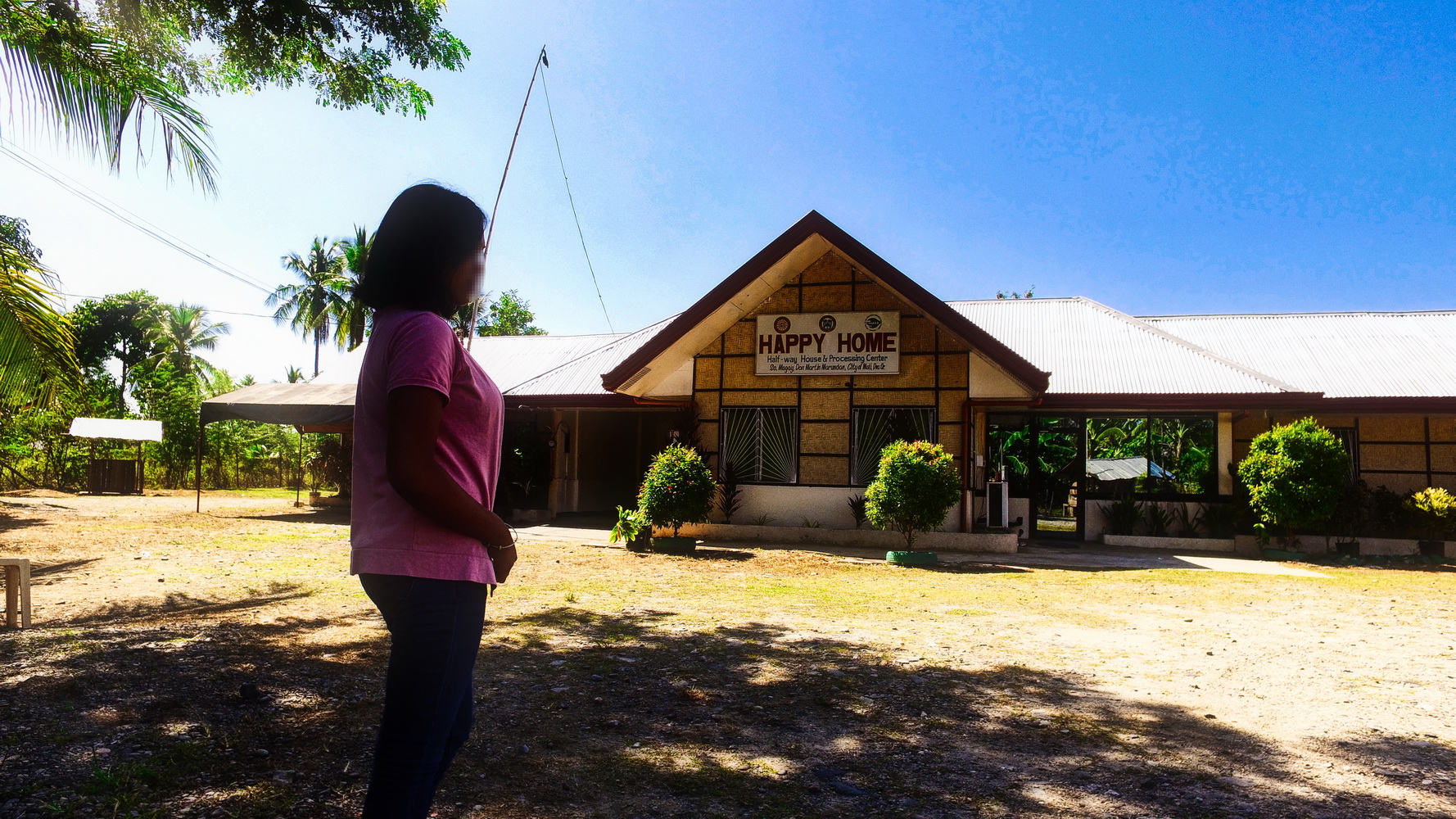
Having a problematic relationship with her mother, Beth said “like most teenagers, I became rebellious and eventually agreed to join my father in the revolutionary movement. A choice that I so regret now.”
A Child Soldier
Beth served as a medic in a squad of 14 people belonging to the Guerilla Front 15 which operates within the borders of Davao Oriental and neighboring Compostela Valley province.
She said that during the first few days of her stay in the movement, she immediately felt the urge to run away but the chances of escape were too narrow with the prying eyes of their leaders. She was indoctrinated with Communist ideologies and was given a crash course on armed tactics.
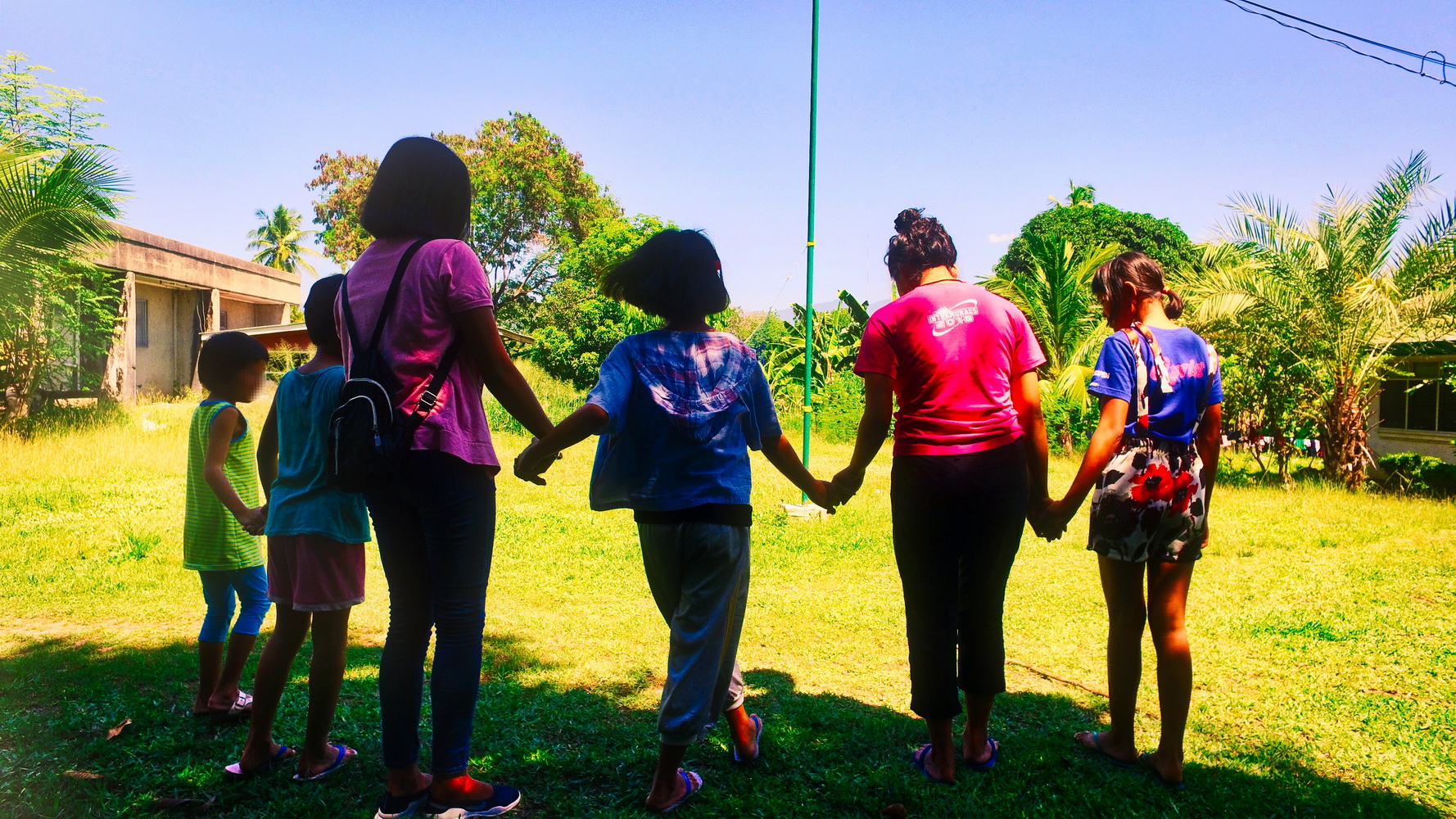
For six months, Beth endured fatigue from days of walking through dense forests while carrying heavy loads of bags filled with supplies. “We spent days walking. We could only rest during the night to sleep then we move again at the break of dawn,” she recalled.
She said she also experienced days without food. At times they just settled consuming bamboo shoots just to survive. “Crying almost every night did nothing to help,” she said.
While she managed to endure months of exhaustion and hunger, Beth only felt the strong resolve to escape after three violent encounters with government troops. Even though she fought in the company of her father, Beth said she did not feel safe. Witnessing death and injury among her comrades, she only felt fear for her dear life.
“I thought I would go crazy when the shooting started. I could not move. I just fell in the ground and took cover until the shooting stopped,” Beth said as she recalled her first encounter.
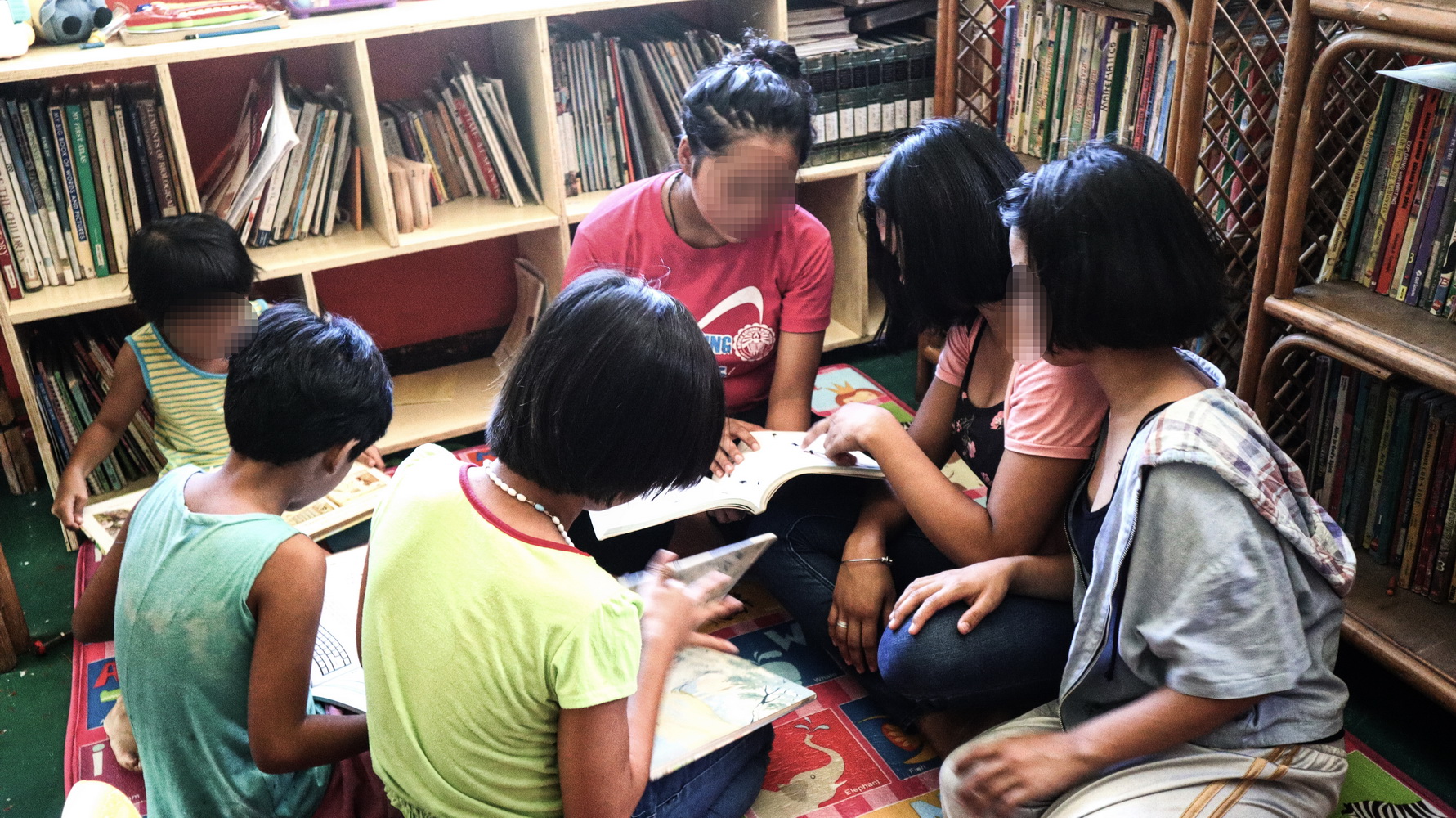
She said there were others just like her who were minors inside the movement. One she knew had already managed to escape.
Amidst the hardships, Beth along with four other comrades plotted an escape. She said she was aware of the punishment that awaits those who try to escape from the group, but she and her four other comrades were determined to abandon the insurgent group.
Reinforcing her decision to escape was an advice that came from her friend’s mother who is also a former rebel. “She tried to convince me in one occasion to give up,” Beth said.
A Narrow Escape
When a window of opportunity came, Beth dashed away from their camp in the mountains. Of the five of them who plotted the escape, only she managed to flee.
Afraid of being discovered by a team that pursues her, Beth ran barefoot as she threw away her boots that caused too much noise. She hid in some bushes in the riverbank and resumed to move when it was already dark.
“After more than ten hours of walking, I reached a small village. When I felt it was safe, I slept on the ground near a river enduring the freezing cold air,” she said.
Beginning of Hope
At the crack of dawn, Beth sought the help of villagers in the town of Maragusan in Compostela Valley who helped her to get a motorcycle that brought her to the town proper. With nothing but the clothes on her back and small cash she stole from her father, she was able to buy fresh clothes and pay for fare to Davao City where she surrendered to the Philippine Army in Camp Panacan accompanied by her friend’s mother.
“The soldiers were really good to me. They took care of me. Their treatment was so different from what we were told that they will hurt us.”
She was later enrolled in the government’s Enhanced Comprehensive Local Integration Program (E-CLIP) for former rebels and received scores of benefits.
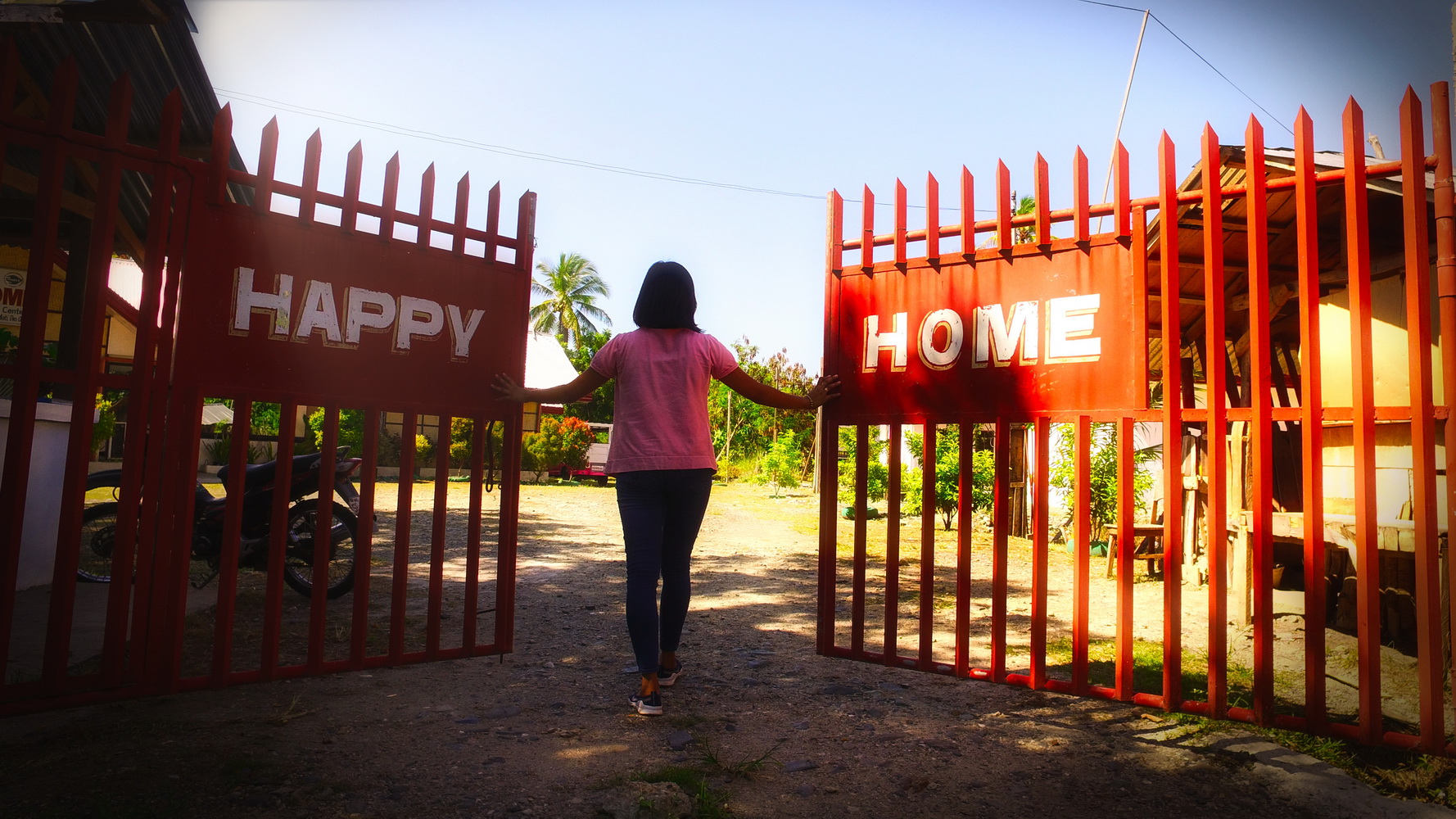
Having used to operate in Davao Oriental, her documents were processed in the province. She had undergone a ten-day deradicalization course at the 701st Kagitingan Brigade based in the City of Mati and was later endorsed to the Happy Home – a Provincial Government-run halfway house for former rebels where she received various trainings, skills development, psychosocial therapy, and attended the Alternative Learning System of the Department of Education, among many other trainings within the course of three months.
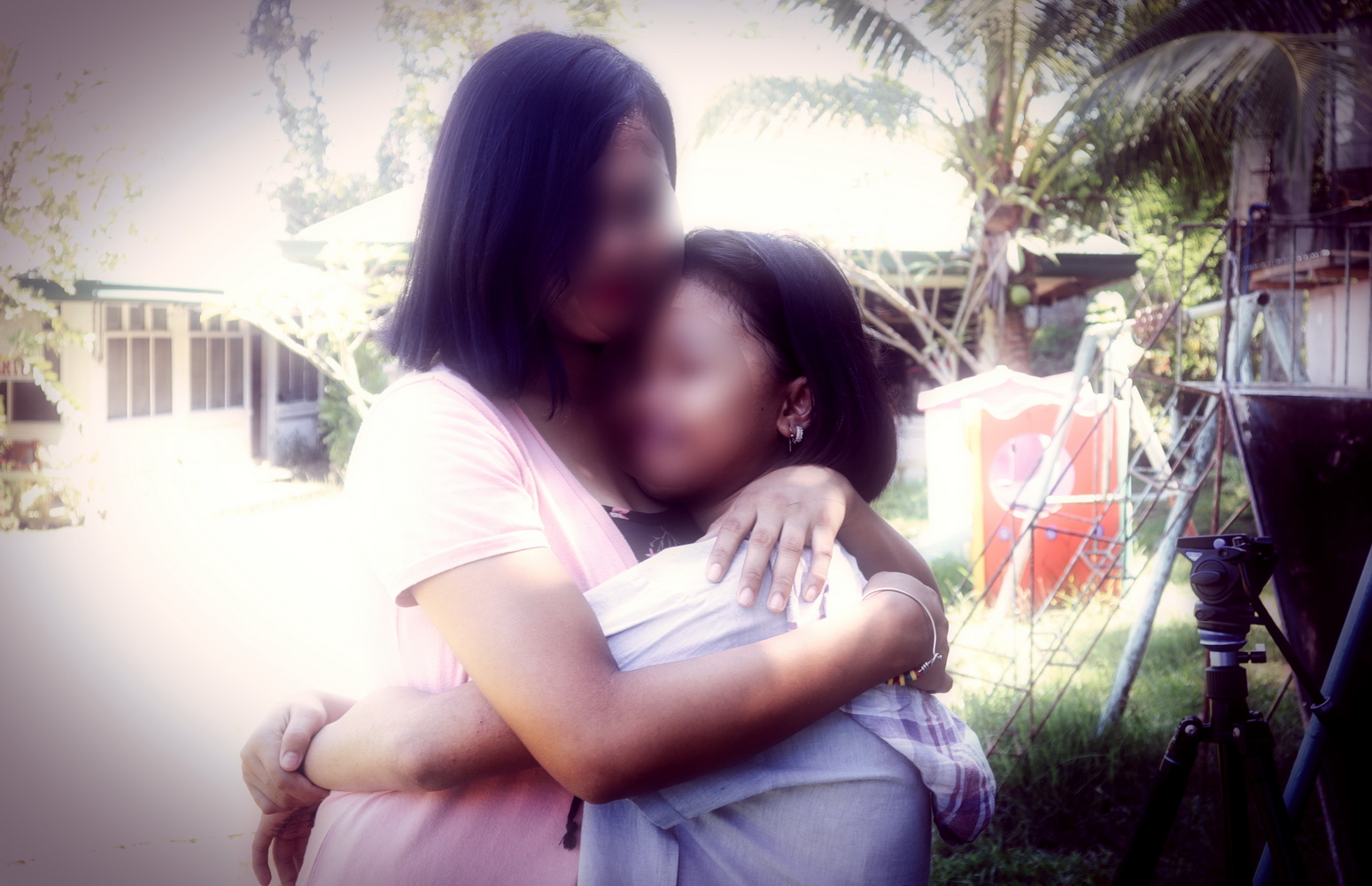
As a protocol for female minors, Beth spends the day at the Happy Home and was accommodated during night time at the RSDC facility. The RSDC is another facility owned by the province which is a safe haven for women and children who were victims of abuse and violence.
Aside from the trainings and therapies, Beth also became recipient of a livelihood assistance amounting to P65,000. She is also set to benefit from the government’s housing program.
Amidst all these benefits, Beth now dreams to finish her study to become an English teacher. “I want to help other children to learn,” she said.
However, asked about her father, Beth finally broke down. She said that her ultimate dream is for her father to come down and surrender so that they will be reunited with her family.
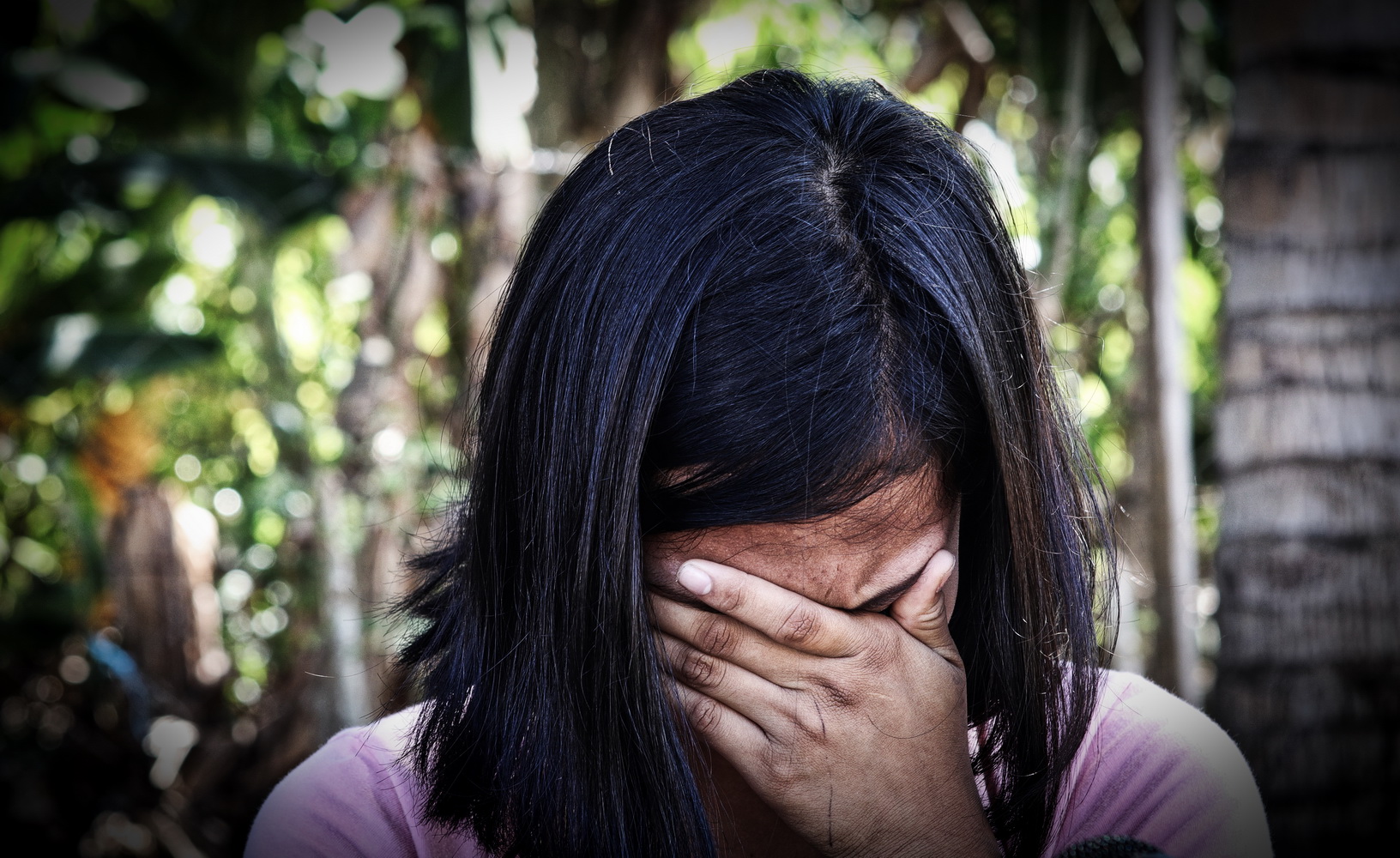
As she is now certain about her future, Beth thanked the government, the soldiers, and the people who helped end her ordeal.
Her only words of advice to others just like her who might be lured to join the NPA rebels is for them to steer clear from the enemy’s false promises.
Violation of Humanitarian Law
For the government and the international community, the recruitment and hiring of minors to the armed struggle is a huge violation that the NPA continuously commits.
As stated under the Comprehensive Agreement on Respect for Human Rights and International Humanitarian Law (CARHRIHL), which both the Philippine Government and the National Democratic Front have mutually agreed upon, both parties have committed to uphold, protect and promote “the right of children and the disabled to protection, care and a home, especially against physical and mental abuse, prostitution, drugs, forced labor, homelessness, and other similar forms of oppression and exploitation” (Part III, Respect for Human Rights, Art. 2, No. 24).
This was further emphasized under Part IV, Respect for International Humanitarian Law, Art. 10, which stated the NDF’s commitment “to provide special attention to women and children to ensure their physical and moral integrity. Children shall not be allowed to take part in hostilities.”
Amidst these provisions, recruitment of minors to the insurgent movement is still rampant up to the present. By Karen Lou Deloso/Photos by Rhea Shane Laureano
